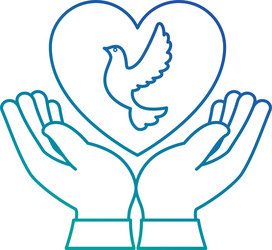Theology: A Catalyst for World Change
When we ponder the essence of theology, we each bring our unique perspectives and personal encounters to the table. This individual connection is a profound aspect to consider.
So let's take a look:
Theology, on the one hand, is the systematic study of religious beliefs, concepts, and practices. At its core, theology examines questions about:
The nature of the divine/sacred
Religious texts and their interpretation
Faith and religious experience
Religious doctrine and traditions
The relationship between religion and other aspects of human life (ethics, culture, society)
On the other hand, there is a personal experience to theology that often is more focused on the "lived" experiences of meeting the Significant Other we call God.
Within the realm of movements sparked by the wisdom of Joseph Cardijn and others, and the documents of Vatican II, we witness the enduring link between theology and social justice, rooted in a rich historical legacy that continues to thrive today.
Religious traditions focused on the Sermon on the Mount, Falling the Call, often emphasize caring for the vulnerable, challenging unjust systems, and working toward the common good.
Some critical aspects of how theology connects to social action: try using the See-Judge/Discern-Act method to understand the connection better. This method involves first 'seeing' the social issues around you, then 'discerning' the underlying causes and potential solutions, and finally 'acting' in a way that aligns with your theological beliefs. Ask yourself where you find your comfort level. Where do I need to step out of my comfort zone? What action should I take, and should I encourage others along with me to take?
Sacred texts and justice:
Hebrew Bible/Old Testament prophets like Amos and Isaiah strongly condemned economic exploitation and called for justice for the poor.
Jesus's teachings emphasized care for the marginalized, critiqued wealth inequality, and called followers to active service.
Islamic texts emphasize zakat (charitable giving) and social responsibility. Do we see this as a pattern in achieving the greater good?
Buddhist teachings on compassion and interconnectedness motivate social engagement. Read some Thomas Merton and experience the connection between the East and the West and the meaning of the greater good.
Religious movements for social change:
The Civil Rights Movement was deeply rooted in Black Church theology. Do we understand how this movement relates to the Sermon on the Mount? Read Taking Down Our Harps: Black Catholics in the United States by Cyprian Davis OSB and Diana Hayes.
Liberation theology in Latin America connected the Christian faith with opposition to oppression. What is our understanding of Liberation Theology? How does Liberation Theology mirror the work and teachings of Joseph Cardijn? Albert Nolan? And others?
Religious leaders like Desmond Tutu and Martin Luther King Jr. grounded activism in theology. How often do we see See and Judge but stop before acting?
Dorothy Day's Catholic Worker Movement combined faith with direct service to the poor. Is there a silent resistance to direct service to the poor in our churches and communities? Or do we just assume that is what Catholic Charities is all about, and as long as I write a check, I am good to do my part?
Contemporary theological frameworks:
Feminist theology challenges patriarchal structures. Where do we stand? Should we again study the first 250 years of Jesus' followers to see what the solidarity of genders meant?
Eco-theology connects faith with environmental justice. Do we fully understand why this is a matter of theology?
Public theology examines faith's role in civic life and social issues. Remember, Jesus was public and political, and the Sermon on the Mount was the mantra Jesus laid out for those who desired to bring about the kingdom of heaven here and now. Keep in mind that the rise of "Christian nationalism”' we see today is the antithesis of the Sermon on the Mount.
Practical expressions:
Faith-based organizations providing direct aid are great places to get involved.
Religious communities organizing for policy change: This is theology in the public for the public
Interfaith coalitions address shared concerns about what it means to be human. You can spend some time studying comparative religions and take a class on them.
Individual believers are motivated by faith to serve others.
As Andreas Frick, Chief Executive of the Catholic aid organization Misereor, eloquently puts it, "Theology is no longer limited to conceptualizing the world but attempts to understand itself as a moment in the process by which the world is changed. Because - in protest against the trampling of human dignity, in the fight against the exploitation of the vast majority of people, in the love that liberates and in the creation of a new, just, and fraternal society - it opens itself to the gift of the Kingdom of God." This quote encapsulates the transformative power of theology in the pursuit of social justice.


